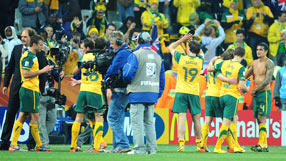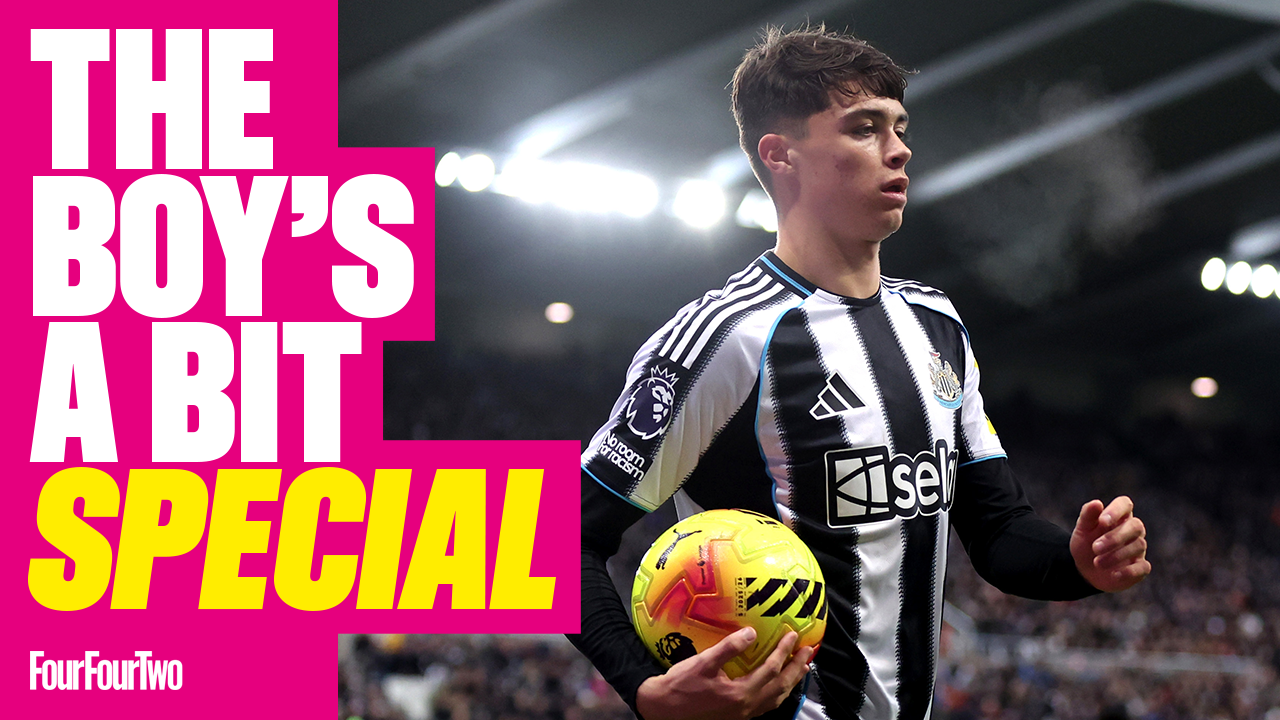
The best features, fun and footballing quizzes, straight to your inbox every week.
You are now subscribed
Your newsletter sign-up was successful
Want to add more newsletters?

Five times a week
FourFourTwo Daily
Fantastic football content straight to your inbox! From the latest transfer news, quizzes, videos, features and interviews with the biggest names in the game, plus lots more.

Once a week
...And it’s LIVE!
Sign up to our FREE live football newsletter, tracking all of the biggest games available to watch on the device of your choice. Never miss a kick-off!
Join the club
Get full access to premium articles, exclusive features and a growing list of member rewards.
Their 2-1 defeat of Serbia on Wednesday restored some pride but was not enough to send them through to the last 16 of the tournament.
They finished level on points with second-placed Ghana in Group D but lost out to the Africans on goal difference.
The Aussies will be disappointed to have fared worse here than at Germany 2006, when they made the knockout stages and lost narrowly to eventual champions Italy.
Ultimately, they will surely look back on their opening 4-0 defeat at the hands of Germany as their undoing. It was that result that wrecked their goal difference and they were always playing catch-up in the group after that.
They were also left to rue the two red cards they received in their opening two matches.
Not only were they shown to two of their best players in Tim Cahill and Harry Kewell, but they were given very early on in each game. Had they had 11 players on the pitch throughout those matches, things might have been different.
The end of Australia's 2010 World Cup campaign marks the end of the road for their coach Pim Verbeek - who had already said he would step down after the tournament - as well as some of their older players such as defender Scott Chipperfield.
The best features, fun and footballing quizzes, straight to your inbox every week.
"I think Australia is going to go through a rebuilding stage now," 34-year-old Chipperfield said after Wednesday's match.
"A few players are finishing up so it's time for some new players to come through now over the next couple of years or so.
"We've qualified for two World Cups, it's been great but there's still a lot of work to be done to be considered one of the top teams.
"We have some talent coming through but we still have to see how they go at the international level, they haven't been tested yet."
GREY PHASE
One of those younger players is 26-year-old Brett Holman, who scored two of Australia's three goals at these finals.
"We're going through a grey phase I think now," he said.
"It's one of those things when we definitely have to sit down and have a chat with a circle of a couple of the older boys about what the future holds, especially with the new trainer supposedly coming in, being announced in the next few months.
"I think we have to keep qualifying and reaching the World Cup and then we can start calling ourselves a well-known football country. We've made it twice but we now we want to make it a third time, a fourth time, a fifth time.
"Once we start doing that on a regular basis then we can start calling ourselves a footballing nation."
The future of Australian football lies with players like 23-year-olds Nikita Rukavytsya and Dario Vidosic, who were part of the squad here and are already establishing themselves at European club sides.
Midfielder Carl Valeri, 25, also came of age at this World Cup and is likely to be a key figure in Australia's plans for 2014.
"There a
 Join The Club
Join The Club










